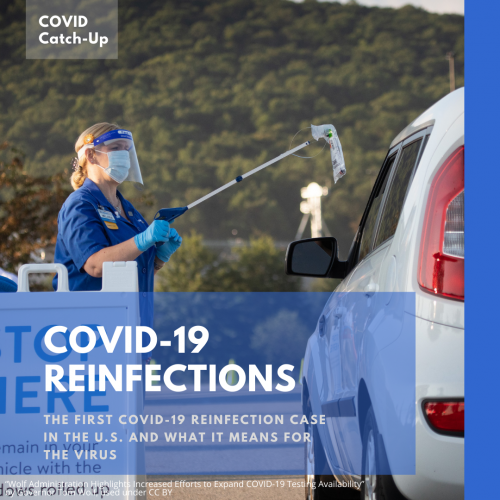Graphic by Ishani Singh.
Recently, researcher Dr. Richard L. Tillet of The Lancet Infectious Diseases investigated the case of a 25 year old man from Nevada who initially tested positive for COVID-19 in April. Forty-eight days after recovering, he tested positive again. While it is unlikely the virus came from the same infection, his symptoms were significantly worse the second time around, requiring oxygen support. He was found to have positive COVID-19 antibodies in his system after the second infection; it is unknown whether they were present after the first infection.
Was a lack of antibody response the reason this patient was reinfected? This is difficult to ascertain. Very few patients are tested for antibodies after an initial infection. Antibody levels are also dependent on the time after exposure to infection. Furthermore, the severity of reinfections is seen to vary from asymptomatic to greater than the initial infection. Asymptomatic patients are far less likely to be tested than those showing symptoms, therefore data collected on reinfections is highly skewed.
That being said, we may not need separate vaccines for each viral isolate. There is no evidence that would suggest reinfection is caused by a variant of the viral strain.
Overall, it is clear that even after testing positive for COVID, one must remain vigilant in their behavior in order to reduce infection rates for others.
Source: https://www.thelancet.com/journals/laninf/article/PIIS1473-3099(20)30783-0/fulltext

